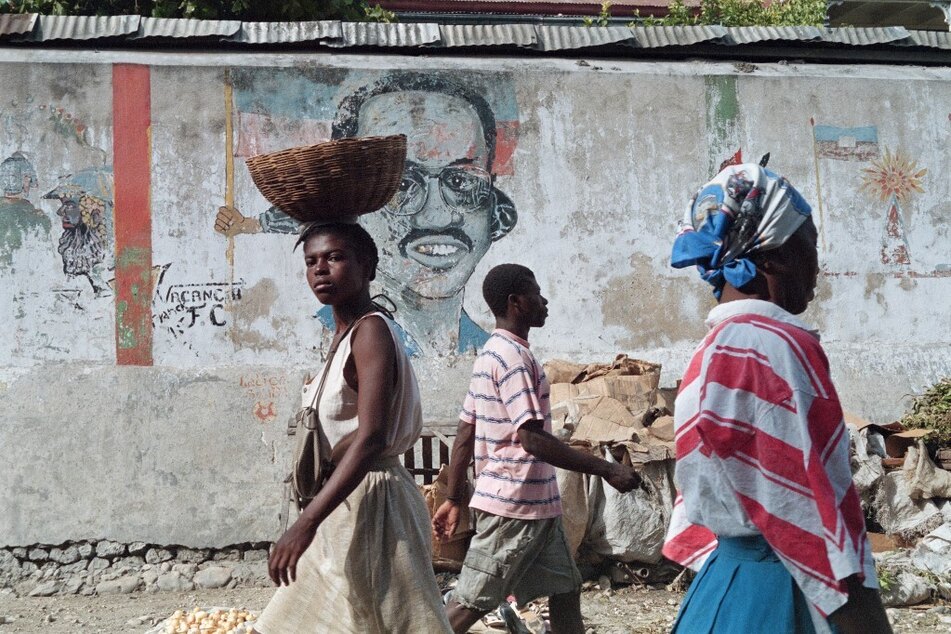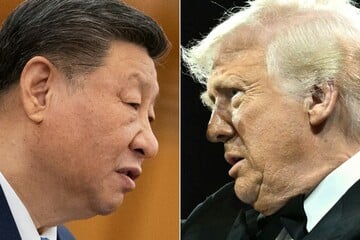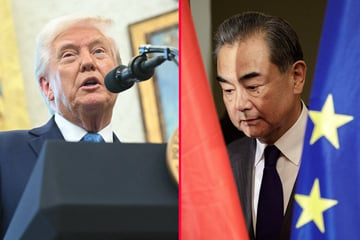Haiti transitional council names new prime minister amid gangs crisis
Port-au-Prince, Haiti - Haiti's transitional government council on Tuesday named a new prime minister to lead the violence-hit Caribbean nation, choosing Garry Conille, who briefly served in that role from 2011 to 2012.

A member of the council told AFP that Conille was chosen in a 6-1 vote Tuesday afternoon. Council president Edgard Leblanc and member Fritz Alphonse Jean also announced Conille's selection on social media.
The move comes as Haiti anticipates the deployment of a Kenyan-led multinational force tasked with wresting back control from violent gangs, which control swaths of the capital.
The UN-backed mission – which the US is providing with logistical support, but not boots on the ground – is reportedly intended to help Haiti's weak, outgunned police force defeat the gangs.
Armed groups, which also control large parts of the countryside, have long terrorized Haitians with random shootings, kidnappings, and sexual violence.
The country has been wracked for decades by poverty, natural disasters, political instability, and violence. It has had no president since the assassination of Jovenel Moise in 2021, and it has no sitting parliament.
Throughout its history, Haiti has faced extreme repression from Western nations – including the US – due to its symbolic status as the first Black Republic established by formerly enslaved people.
Growing calls for reparations for Haiti

The transitional council came to power last month as Haiti's unpopular and unelected prime minister Ariel Henry submitted his formal resignation after armed gangs rose up and demanded his ouster.
The last election was in 2016, and the transitional council has been struggling to assert its authority, with food running short, tens of thousands fleeing their homes, and the health care system on the brink of collapse.
The main airport in Haiti partly reopened earlier this month after being closed since early March, when the gangs went on a coordinated rampage they said was aimed at toppling Henry.
Last week, it was announced that gang members had killed three missionaries, a Haitian and an American couple.
One big question mark now is how the gangs will respond to the arrival of the Kenya-led force.
Meanwhile, demands for reparations are growing for crimes of the colonial era which continue to the present day.
After Haiti's triumph over Western imperialism, France used military force to demand the fledgling country pay 150 million francs in regular installments. A 2022 New York Times analysis found that the money Haiti gave France would have added at least $21 billion to the country's economy over the last two centuries.
The US also played a role in undermining Haitian independence. American Marines invaded and looted Haiti's National Bank in December 1914, transferring $500,000 in gold reserves to New York. The next summer, the US launched a 19-year occupation of the country.
This legacy of intervention triggered persisting cycles of debt, vulnerability, and trauma. Powerful nations have made matters even worse by continuing to interfere in Haitian elections and to manufacture the weapons enabling today's gang violence.
Today, Haiti, a nation of 11.6 million people, is the poorest country in the Americas.
Cover photo: Collage: THONY BELIZAIRE / AFP & REUTERS

